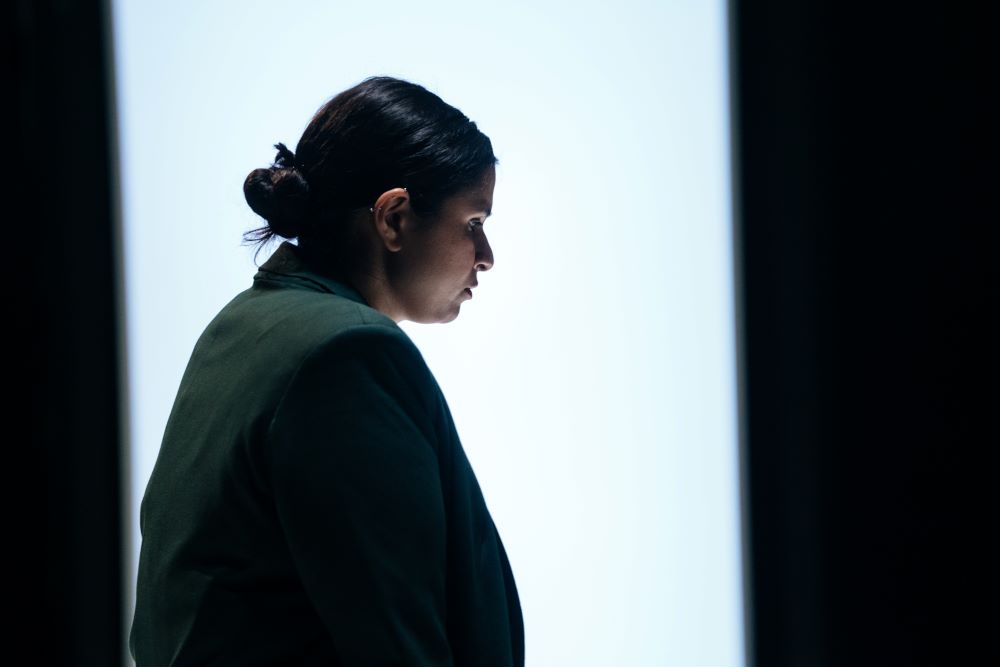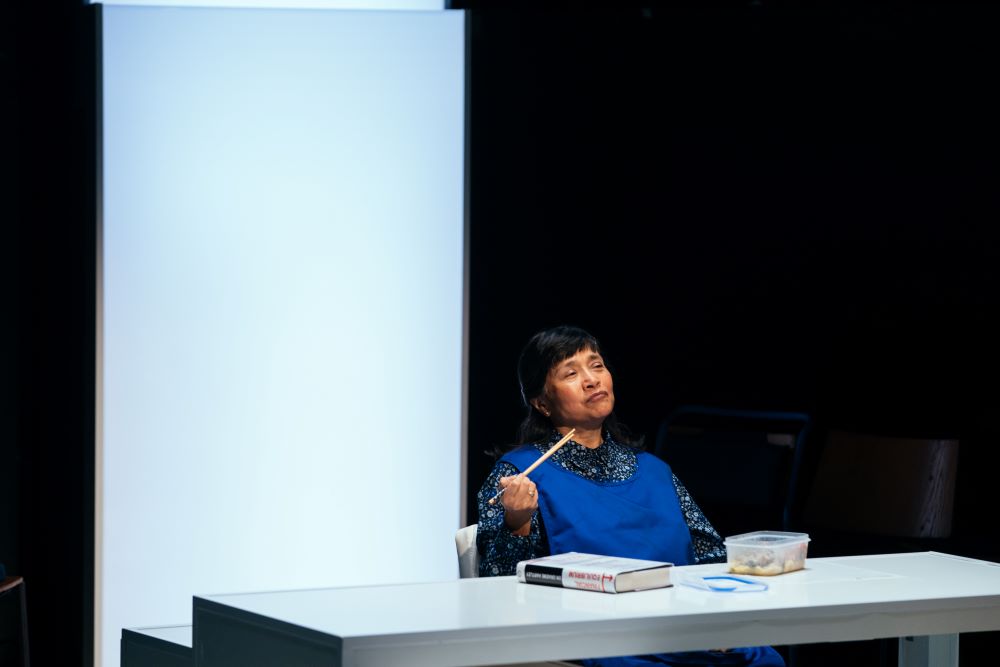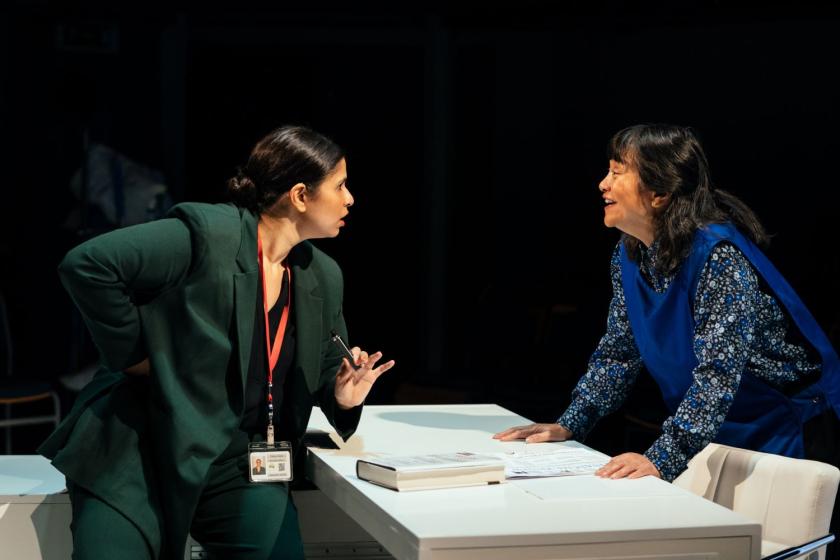“Careful, there’s a hole in the floor.” The warning’s an unusual one, passed along conscientiously by the stewards at the door of the tiny Orange Tree Theatre.
The hole in question is long and angular and will soon be filled with water, stretching around one side of the pristine white set of Rice, a new play by Australian-Hmong writer Michele Lee. It’s an intimate two-hander about immigration and belonging, directed ably by Matthew Xia – but, like its characters, it’s suffering an identity crisis.
Our heroines are two women of colour: Nisha (Zainab Hasan, pictured below), a young executive at Australia’s biggest rice company, and Yvette (Sarah Lam), a Chinese migrant who works as a cleaner in Nisha’s building. Nisha’s planning the deal that could make her career, a takeover of India’s national rice distribution system. Yvette’s trying to get back on her feet after several failed business ventures, her daughter Sheree facing prison time for accidentally assaulting a supermarket CEO while protesting his wasteful business practices. Through their late-night interactions in Nisha’s office, they form a prickly sort of friendship. This is the first time Lee’s work has been produced in the UK, but her sharp humour’s survived the trip from the other side of the globe intact. Hasan and Lam spark off each other well, and are expert at talking directly to the audience, to great comedic (and sometimes tragic) effect. In a scene where Yvette imagines speaking to the man her daughter injured, Bethany Gupwell’s lighting design frames Yvette in the doorway, working beautifully with Xia’s blocking to throw a thread of connection between Yvette and “Mr David Egan”.
This is the first time Lee’s work has been produced in the UK, but her sharp humour’s survived the trip from the other side of the globe intact. Hasan and Lam spark off each other well, and are expert at talking directly to the audience, to great comedic (and sometimes tragic) effect. In a scene where Yvette imagines speaking to the man her daughter injured, Bethany Gupwell’s lighting design frames Yvette in the doorway, working beautifully with Xia’s blocking to throw a thread of connection between Yvette and “Mr David Egan”.
Hyemi Shin’s ingenious set shows the stark difference between the two women’s lives: Nisha lifts a panel in her desk, and it lights up like a laptop screen. Yvette lifts another section, and scrubs the toilet bowl within. We meet them mid-argument about who should put Nisha’s empty food containers in the bin, each appealing to the audience with resolute rationality. “You’re the cleaner!” Nisha points out, exasperated. “You’re a baby!” Yvette counters.
As Lee notes in the programme, Rice is only “ostensibly” a two-hander. Hasan and Lam (pictured below) are the only actors onstage, but they play each other’s bosses, boyfriends, colleagues and rivals. Hasan’s version of Sheree strops around the stage like a sitcom teenager: “Earth to Ma, you’re not Asos!” Lam is delightfully odious as Indian civil servant Gretel Patel, who takes every opportunity to thwart Nisha’s plans – all while apologising profusely for the inconvenience, naturally.  The scene transitions are brief, leaving us wanting more of composer Lex Kosanke’s ticking techno beats. At one point, they fade out completely, which adds to the general feeling that Rice doesn’t know what kind of play it wants to be. There isn’t really a plot beyond Nisha’s attempts to get her deal through, and what you’d expect to be an earth-shaking twist – Nisha’s infidelity – quickly fades into the background once it’s played its part in the narrative.
The scene transitions are brief, leaving us wanting more of composer Lex Kosanke’s ticking techno beats. At one point, they fade out completely, which adds to the general feeling that Rice doesn’t know what kind of play it wants to be. There isn’t really a plot beyond Nisha’s attempts to get her deal through, and what you’d expect to be an earth-shaking twist – Nisha’s infidelity – quickly fades into the background once it’s played its part in the narrative.
Lee likes to end her scenes with an unnecessary “he goes”, and the phrase “this is the party of the story where…” crops up throughout the text. But the dialogue feels like we’re eavesdropping on conversations between two characters – in other words, like realism at its best. Switching between the two is jarring. Maybe that’s the point, that the life of a first-generation immigrant, like Yvette, or a third-generation immigrant, like Nisha, will always be disjointed. Or maybe Lee is still figuring out her own opinions on the issues she raises. Whatever the thinking behind it, Rice’s conclusion leaves us wanting more.















Add comment